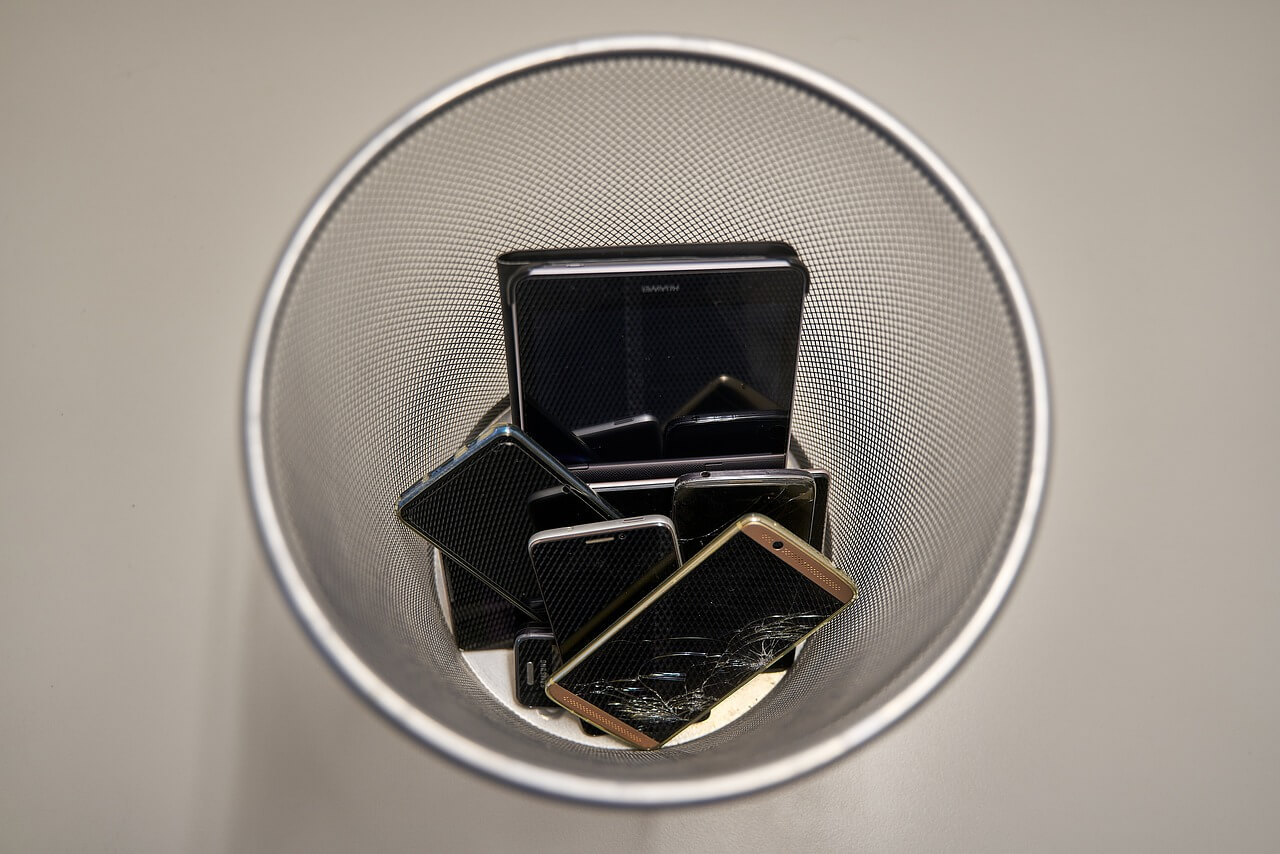Electronics recycling refers to the process of refurbishing or breaking down discarded electronic equipment to recover valuable parts for remanufacturing. It is an essential step towards protecting the environment since it minimises the need to source new raw materials.
Recycling helps reduce the amount of electronic waste and toxic waste that ends up in landfills. But before we delve deeper, what is electronic waste? Read on.
As the world aims to create a more sustainable future, there has been an increase in IT asset disposition initiatives. Many modern organisations are adopting the new model as it provides a more secure and responsible way to get rid of their decommissioned IT assets. Companies can practice IT asset disposition themselves or seek the help of a specialised ITAD company.
What is Electronic Waste?
Electronic waste, or E-waste, refers to any electronic device that has been discarded. These include old computers, TVs, laptops and phones and also other household appliances that have reached the end of their useful life. According to Statista, we generate about 50 million metric tonnes of E-waste every year. Sadly, only 12.5% of this amount is recycled, while about 80% end up in landfills.
As mentioned above, e-waste contains harmful chemicals, such as lead and mercury, which can lead to severe health conditions in humans in addition to destroying the environment.
E-Waste Crisis in the UK
According to a 2023 research by Circular, UK is one of the leading e-waste generators in the world, coming second only to Norway. With 23.9 kg per capita of e-waste, the UK is projected to overtake Norway to take the top spot by 2024.
These dynamics present a great deal of environmental and health risk, especially since a significant percentage of these electronic wastes are sent to landfills.
Projected E-waste Generation in the Future
With the proliferation of technology, electronic waste is expected to increase significantly over the next few years. According to research by Statista, the amount of E-waste generated globally will have increased by about 30% by 2030. The amount is likely to be higher, especially with the trend towards a more digital economy and the lack of substantial efforts towards reducing e-waste.
Also read: E-waste Reaches Alarming Levels, with Five Billion Phones To Be Thrown Away This Year
As a leading country in e-waste generation, the UK is projected to generate about 55000 tonnes of e-waste by 2030, according to a study by USwitch. That will lead to an increase in the amount of hazardous waste ending up in the environment. However, with the government’s intervention, that number could be significantly lower.
The Shift in Consumer E-Waste Recycling Behaviour
Over the past few years, there has been a significant shift in consumer e-waste recycling behaviour. Consumers are increasingly conscious of electronic waste disposal habits, and many prefer recycling over sending them to landfills.
There are a few factors driving this recent shift, including;
- Increased availability of recycling programs – Whether you are a large organization or a small-scale electronic consumer, you can quickly find an ITAD company to help you recycle electronic waste in an eco-friendly manner.
- Higher financial incentives for recycling electronics – Besides IT assets disposition, the higher financial incentives have been a major driver for the consumer shift with regard to recycling electronics. It is relatively cheaper for consumers to recycle electronic devices rather than source new raw materials – which has helped encourage them to opt for e-waste recycling.
- Increase in demand for refurbished electronics – Refurbished electronics are relatively cheaper than newer alternatives. As a result, more consumers are opting for these refurbished phones and laptops – which has increased the demand and driven the shift towards electronics recycling.
Also read: What Can You Do With An Old Android Phone? Here’s 20 Great Ideas to Repurpose Old Devices
Investments for Recycling Electronics in the UK
With the ever-increasing amount of e-waste, the UK has taken a few measures to help encourage electronics recycling. These initiatives primarily encourage companies to manufacture sustainably and incentivise consumers to recycle their electronic waste. Here are a few steps taken by the UK to promote e-waste recycling in the country:
- The government has invented several organisations, such as the Waste and Resources Action Programme (WRAP), that provide support and guidance to promote sustainable manufacturing.
- It has also implemented various initiatives, such as Waste Electrical and Electronic Equipment Regulations (WEEE), that persuades manufacturers to collect, treat and recycle their own electronic brands.
- Introduction of Electronic Waste Fund (WEEE) (material focus) for funding organizations and businesses that produce refurbished laptops and other electronic devices.
There are many other investments that the UK has made to encourage the recycling of electronics and secure a better future, but these are the most effective ones.
Conclusion
We all have a part to play when it comes to recycling electronics. For instance, you should consider buying refurbished laptops and phones over newer devices.
You can also start purchasing durable electronics to reduce the need to replace them regularly, which minimizes the amount that ends up in landfills.
Also read: 5 Eco-Friendly Smartphones To Help The Environment and Reduce E-Waste
Article contributed by Milica Vojnic of Wisetek. Wisetek is a global provider of data centre services, electronic recycling services, data erasure services, IT asset disposal services and data sanitization solutions.
Follow TechTheLead on Google News to get the news first.

















